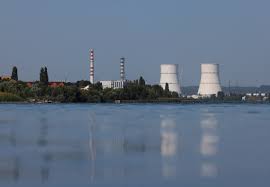
The head of the UN’s International Atomic Energy Agency (IAEA), Rafael Grossi, has arrived at Russia’s Kursk nuclear power plant to independently assess the conditions amid heightened tensions following Ukraine’s recent military actions. Grossi’s visit underscores the serious concerns regarding the safety and security of nuclear facilities amid ongoing conflict.
Assessment Amid Conflict
Grossi’s mission comes in response to growing fears about the risks associated with nuclear plants in conflict zones. The Kursk plant, located just 60 kilometers from the Russia-Ukraine border, has become a focal point of concern after recent escalations in the region. On August 6, Ukrainian forces launched an unexpected incursion into Kursk, prompting heightened vigilance from international bodies.
Safety Concerns
The IAEA has long warned of the dangers associated with military operations near nuclear plants. Russian authorities have reported finding drone fragments near the plant’s spent nuclear fuel storage, further intensifying concerns about potential safety breaches. Grossi emphasized the importance of assessing the situation independently due to the “serious” nature of the current risks.
Historical Context and Current Risks
The Kursk plant, which has four reactor units (two operational and two under construction), is similar in design to the Chernobyl facility. The 1986 Chernobyl disaster, caused by a reactor explosion, remains the worst nuclear accident in history. Although significant safety upgrades have been implemented since then, experts caution that damage to spent fuel storage could still pose severe risks.
Calls for Restraint
In light of these dangers, the IAEA has urged both Russian and Ukrainian forces to exercise “maximum restraint” to prevent any nuclear accidents. The ongoing conflict has already displaced over 130,000 people in the region, amplifying the need for cautious handling of nuclear facilities.
Ongoing Monitoring
Grossi’s visit and assessment are part of broader efforts to ensure the safety of nuclear plants amid the ongoing conflict. The IAEA continues to monitor the situation closely, advocating for measures to avoid any potential radiological hazards that could arise from the ongoing hostilities.
The international community remains focused on the developments in Kursk, with hopes that diplomatic efforts and stringent safety measures will mitigate the risks posed by the current geopolitical tensions.
Sources By Agencies


